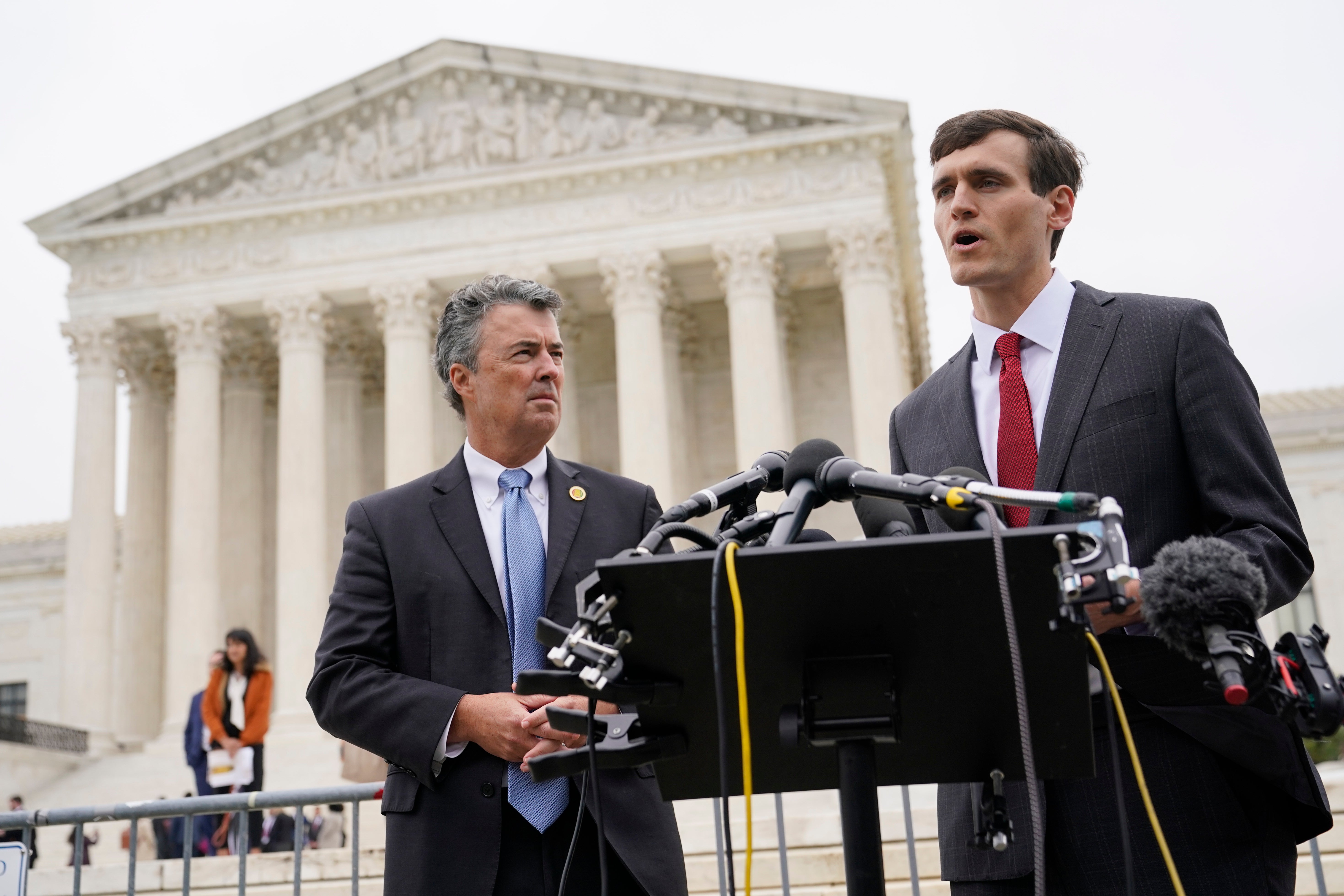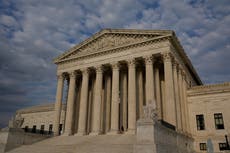The Independent's journalism is supported by our readers. When you purchase through links on our site, we may earn commission.
Alabama’s middle finger to the Supreme Court is dangerous and familiar territory
It’s not the first time the state ignored the courts to diminish Black political power


Your support helps us to tell the story
From reproductive rights to climate change to Big Tech, The Independent is on the ground when the story is developing. Whether it's investigating the financials of Elon Musk's pro-Trump PAC or producing our latest documentary, 'The A Word', which shines a light on the American women fighting for reproductive rights, we know how important it is to parse out the facts from the messaging.
At such a critical moment in US history, we need reporters on the ground. Your donation allows us to keep sending journalists to speak to both sides of the story.
The Independent is trusted by Americans across the entire political spectrum. And unlike many other quality news outlets, we choose not to lock Americans out of our reporting and analysis with paywalls. We believe quality journalism should be available to everyone, paid for by those who can afford it.
Your support makes all the difference.The order from the US Supreme Court was clear. So was the order from another three-judge panel, with two Donald Trump appointees: A map drafted by Republican lawmakers in Alabama that outlines the political boundaries for members of the House of Representatives violated the Voting Rights Act by discriminating against Black voters. It must be redrawn.
So Alabama Republicans went back to the drawing board, and crafted a map that changed virtually nothing.
The state’s middle finger to the Supreme Court pulls from a well-worn playbook of discrimination to diminish Black political power, a history that is deeply embedded in Alabama history.
After grandstanding against proposed ethics laws to preserve the high court’s legitimacy, and celebrating right-wing victories from the court’s conservative supermajority, Republicans seem perfectly content ignoring the Supreme Court when it suits their political needs while protecting a radically reshaped federal judiciary to block anything that threatens them.
A decision from the Supreme Court last month effectively ordered Alabama’s state legislature to rewrite the state’s congressional districts, which for years have packed most of the state’s Black residents – who make up more than a quarter of the state’s population – into just one out of seven House districts. An overwhelming majority of Black voters in the state vote Democratic. Only one member of the state’s congressional delegation is Black, and there are 33 Black lawmakers in the 140-seat state legislature. All but one are Democrats.
On 21 July, facing a court-ordered deadline, Alabama’s GOP-dominated legislature and Republican Governor Kay Ivey maintained the status quo. The “new” map has just one district with a Black voting age population share of slightly more than 50.6 per cent. The Black voting age population in the other proposed district is 39.9 per cent.
It’s a shameless rehash of the same discriminatory map that was shot down in court, and it comes from the same defiant script that the state has used for decades to rob Black voters.
This is the same Alabama where, during a constitutional convention in 1901, when Black residents made up roughly 45 per cent of the state’s population, convention chair John Knox said its goal was “to establish white supremacy in this state.” That constitution is still in place.
The same Alabama, where a right-wing-dominated legislature and the state’s segregationist governors resisted court-ordered school integration efforts throughout the 1950s and 1960s, an effort that came directly from legislated white supremacy adopted by lawmakers decades earlier.
The same Alabama, where state lawmakers created a “sovereignty commission” to effectively spy on residents suspected of sympathizing with the civil rights movement, fuelling economic boycotts against them and getting them fired from their jobs and evicted from their homes.
It’s not even the first time the state tried to bypass federal courts and the Supreme Court to suppress Black voters. AfterSmith v Allwright in 1944 shot down whites-only primaries, lawmakers created an “understanding requirement” that one high-profile Alabama lawyer said would “make it impossible for a Negro to qualify”. When another federal court struck that down, lawmakers came up with poll taxes, property requirements and literacy tests as requirements to vote.
In 2013, the state was behind a legal challenge in front of the Supreme Court to gut the Voting Rights Act, allowing states to adopt Republican-drafted laws restricting ballot access that disproportionately suppress Black and Latino voters. Alabama Republicans celebrated the Shelby County v Holder decision and adopted several suppressive laws that would have previously been struck down as unconstitutional.
Compare how Alabama Republicans celebrated the Supreme Court’s decision to revoke a constitutional right to abortion care last year, rushing to implement anti-abortion laws that were unconstitutional hours earlier, to their brazen defiance of Black voting rights.
Governor Ivey called ending Roe v Wade a “giant step forward for our country” and the answer to “our prayers”. One year later, she signed off on the new map, stating that GOP lawmakers know “our state, our people and our districts better than the federal courts or activist groups.”
Attorney General Steve Marshall said the map “fully and fairly applies traditional principles in a way that complies with the Voting Rights Act”. Last year, he moved to immediately outlaw abortion in the state after a “truly historic day”. Alabama US Rep Barry Moore said he was “relieved” by the new map. He called the decision in Dobbs v Jackson Women’s Health Organization “a huge victory”.
That hypocrisy is nothing new, and not even really hypocritical; it’s a coherent ideology to maintain a desired outcome, one traced along the history of a state that was at the epicenter of the civil rights movement and the violent white supremacist campaign against it.
A federal court hearing in August will determine whether Alabama lawmakers will once again have to rewrite a map, testing how far the state’s lawmakers will go to defend a living relic of an indefensible past, and whether the courts and Congress will let them.
Unmoored from constitutional obligations to protect the right to vote, and without critical federal guardrails, the state is headed into dangerous and violently familiar territory.


Join our commenting forum
Join thought-provoking conversations, follow other Independent readers and see their replies
Comments